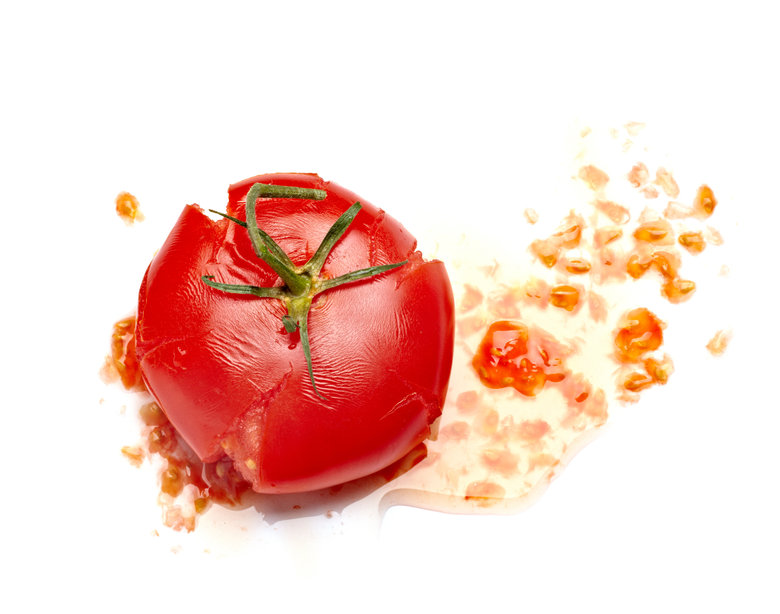In the prior days, rotten tomatoes had one primary use: namely, to be thrown at failing performers or lying politicians.
Today, tomato waste can also be used to make biodegradable bioplastics.
Let all off-key singers and swindling politicians breathe a little easier – there may be less tomatoes available to throw at them!
Jose Alejandro Heredia, a researcher at the Institute of Subtropical and Mediterranean Horticulture (IHSM), has developed a bioplastic made from tomato remains that can decompose in just one month in seawater.
As reported by Bio Market Insights:
“Cellulose is extracted in a purified form from the leaves, stems and skin of tomatoes that are discarded in the canning industry after making tomato sauce or ketchup. Heredia works with the cellulose obtained from these remains to create a material capable of being modified with antibacterial bioactive substances and antioxidants that have properties for food packaging and that can additionally degrade in a minimum time compared to plastic containers.”
While the process sounds promising, Heredia is doubtful the technology will be extensively employed anytime soon. This is because plastic producers would have to create or replace vast new amounts of machinery to make the needed changes.
Still, if the process can be used by companies in the canning industry to capitalize on waste that is otherwise worthless, there just may be enough market incentive to juice up interest in this new tomato packaging concept.
To read the full story in Bio Market Insights, click here.
